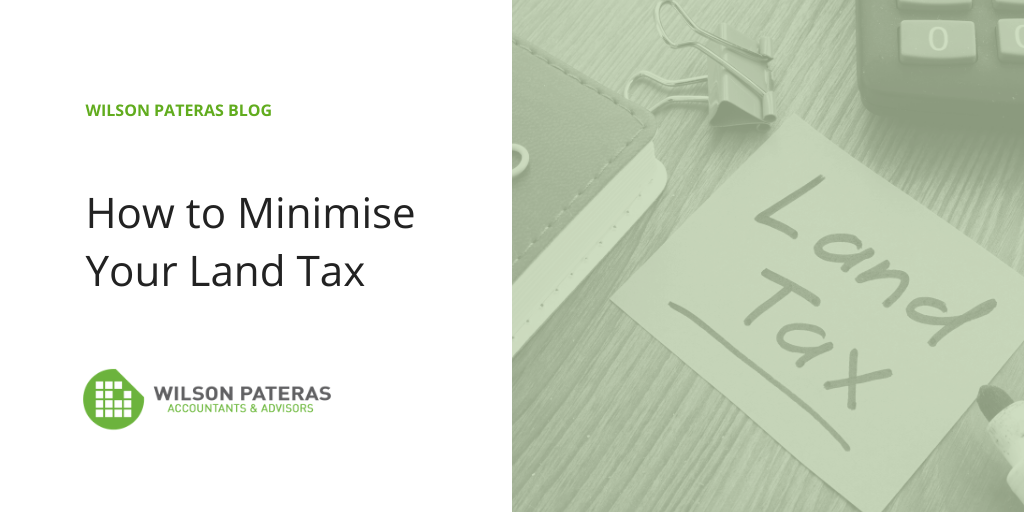
Every State and Territory in Australia levies land tax except the Northern Territory. Each location has their own land tax rates and exemptions (such as the land on which your main residence is built).
In general, land tax is levied if you own (or jointly own):
- vacant land,
- investment properties,
- commercial properties, and
- holiday homes.
It is important to note that land tax is based on the combined unimproved value of all your non-exempt land. Therefore, if you have multiple non-exempt properties, you will pay land tax on their combined value at the relevant State or Territory land tax rate.
Legally reducing or minimising your land tax is a sensible financial strategy. Below are five strategies to help you do that.
1. Buy an apartment in a multi-residential development instead of a house
In general, apartments will be liable to less land tax than the land on which a free-standing house is built. This is because the value of your share of the land in an apartment complex will most likely be lower.
You will only pay land tax on your apartment’s share of the land that the entire apartment complex is built on, not all of the land.
2. Take advantage of different tax-free threshold values for land across Australia
If you buy properties in different Australian States and Territories rather than in just one location, you can take advantage of different tax-free threshold values that are available.
For example, in Victoria there is currently no land tax levied on land valued below $250,000. However in Queensland, there is no land tax on land valued below $600,000. If you buy property in the Northern Territory, you will not pay any land tax at all.
3. Buy property in your partner’s name
Land tax is paid by the owner (or joint owners) of non-exempt properties. You can minimise the value of the property you own by arranging to buy it fully (or jointly) in your partner’s name instead, especially if your partner has not used up any (or all) of their tax-free land threshold value.
4. Buy property via a trust
You could also set up a trust structure or multiple structures to purchase non-exempt land to lower your land tax obligations. However, whether the professional cost of setting up and managing the trust to ensure your legal compliance will be worthwhile depends on how much land tax you will be saving.
It is best to seek professional advice.
5. Strategically time your property sale
Sell before your annual land tax bill is calculated. This date varies in different parts of Australia. For example, the calculation date is 31 December in Victoria and 30 June in Queensland.
If you do not sell by the due date, you will have paid the full land tax for the year that you sell your property.
How we can help
Our experienced team of tax advisors at Wilson Pateras in Richmond can help you to minimise your land tax. It is important to understand that tax minimisation is legal, but tax avoidance is not and can carry heavy penalties from the Australian Taxation Office. We can help you to legally minimise your land tax.
Our individual services also include financial planning, retirement planning, and advice on setting up and/or managing your own self-managed super fund (SMSF).
Contact us today for a complimentary, obligation-free consultation to find out how we can help you.




